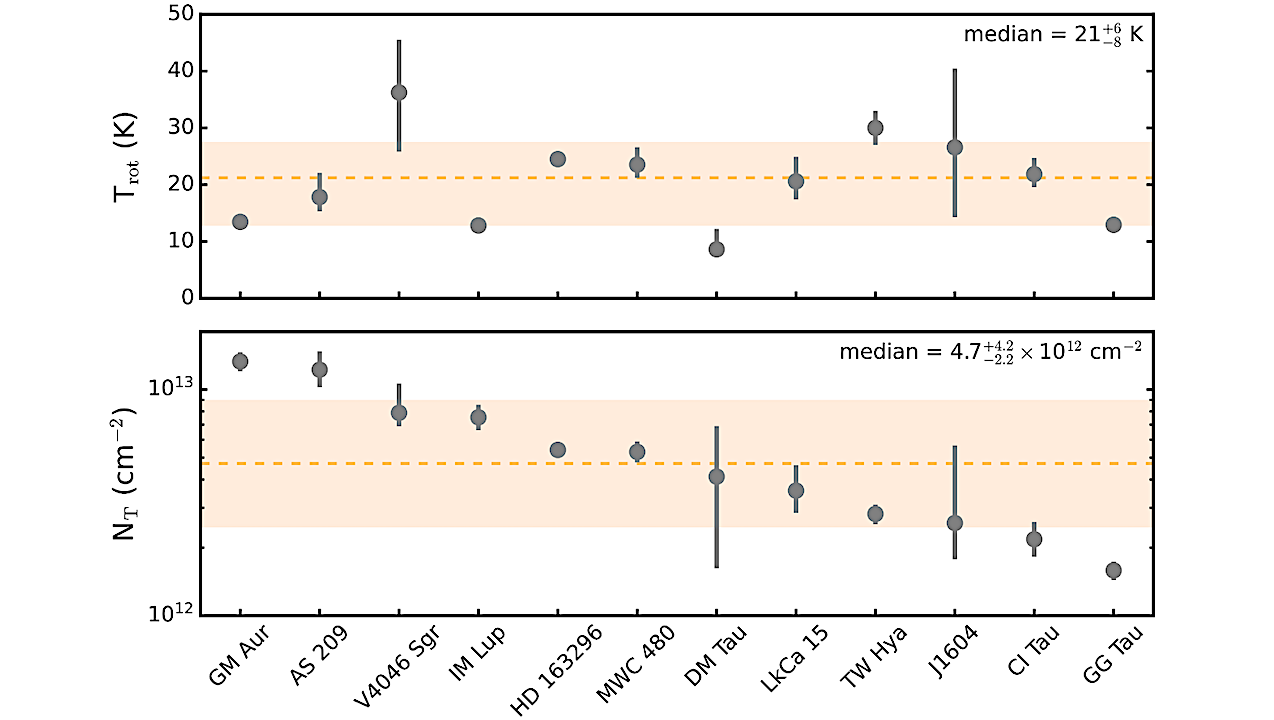Science
New Research Reveals X-ray Influence on Sulfur Chemistry in Disks

Recent findings highlight the pivotal role of sulfur chemistry in protoplanetary disks, which are the stellar nurseries where planets are born. A study published in the journal Astrobiology indicates that the excitation of carbon monosulfide (CS) within these disks is significantly influenced by X-ray emissions. This discovery adds depth to our understanding of how sulfur compounds could affect the properties and potential habitability of emerging planets.
Sulfur is a critical element in the formation of life as we know it. Its chemistry in protoplanetary disks impacts the conditions under which planets develop, potentially influencing their capacity to support life. Over the past decade, researchers have expanded the inventory of sulfur molecules detected in these disks. Despite this progress, CS remains the most frequently observed sulfur-bearing species and is expected to be the main gas-phase sulfur carrier beyond the water snowline, which is the region in a protoplanetary disk where temperatures are low enough for water to freeze.
The research team employed a submillimeter survey technique to investigate the excitation states of CS in various protoplanetary environments. Their results suggest that X-ray radiation from nearby stars may drive significant chemical processes involving sulfur. This could lead to the formation of complex molecules that are essential for the development of life.
This study contributes to a larger body of work exploring how different elements and compounds interact in the harsh conditions of protoplanetary disks. The implications of these interactions are profound, as they could inform future studies on the conditions that lead to habitable worlds.
In addition to its scientific value, this research underscores the importance of continued observation and study of sulfur compounds in space. Understanding the dynamics of CS and other sulfur-bearing molecules could enhance our grasp of planetary formation and the potential for life beyond Earth.
As researchers continue to uncover the mysteries of the universe, studies like this one pave the way for advancements in astrobiology and our quest to discover life on other planets. The findings will undoubtedly inspire further investigations into the complex chemistry of protoplanetary disks and their role in the formation of habitable environments.
-

 Science2 weeks ago
Science2 weeks agoUniversity of Hawaiʻi Joins $25.6M AI Project to Monitor Disasters
-

 Business3 weeks ago
Business3 weeks agoForeign Inflows into Japan Stocks Surge to ¥1.34 Trillion
-

 Top Stories3 weeks ago
Top Stories3 weeks agoMarc Buoniconti’s Legacy: 40 Years Later, Lives Transformed
-

 Top Stories3 weeks ago
Top Stories3 weeks agoBOYNEXTDOOR’s Jaehyun Faces Backlash Amid BTS-TWICE Controversy
-

 Health3 weeks ago
Health3 weeks agoInnovative Surgery Restores Confidence for Breast Cancer Patients
-

 Sports1 month ago
Sports1 month agoSteve Kerr Supports Jonathan Kuminga After Ejection in Preseason Game
-

 Science1 month ago
Science1 month agoChicago’s Viral ‘Rat Hole’ Likely Created by Squirrel, Study Reveals
-

 Lifestyle1 month ago
Lifestyle1 month agoKelsea Ballerini Launches ‘Burn the Baggage’ Candle with Ranger Station
-

 Entertainment1 month ago
Entertainment1 month agoZoe Saldana Advocates for James Cameron’s Avatar Documentary
-

 Politics1 month ago
Politics1 month agoDallin H. Oaks Assumes Leadership of Latter-day Saints Church
-

 Top Stories3 weeks ago
Top Stories3 weeks agoCarson Wentz Out for Season After Shoulder Surgery: Urgent Update
-

 Lifestyle1 month ago
Lifestyle1 month agoDua Lipa Celebrates Passing GCSE Spanish During World Tour









